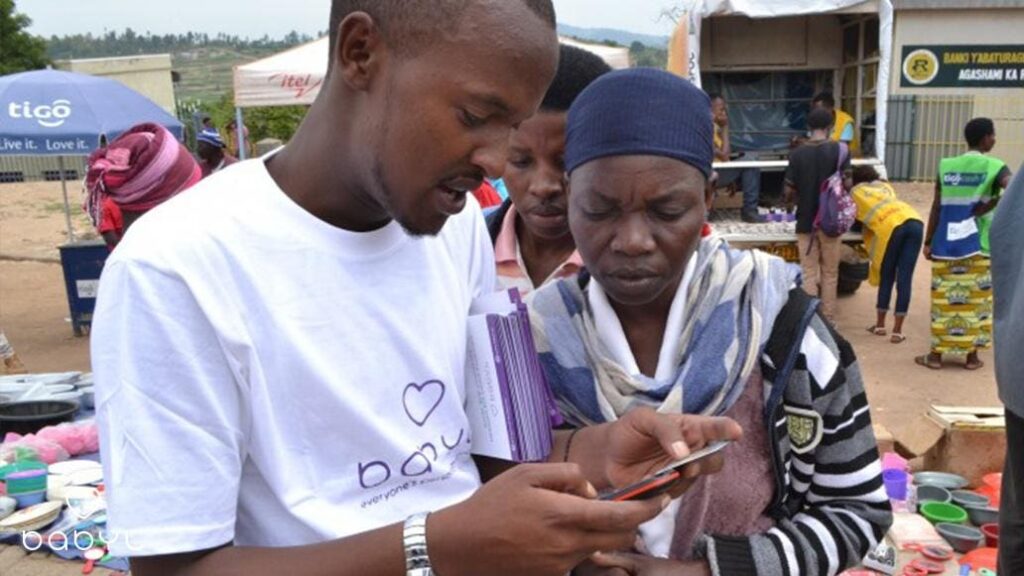A Babyl Rwanda employee.
Babylon Press Kit
In March 2020, digital health company Babylon announced a 10-year partnership with the government of Rwanda to deliver virtual primary care services through its division called Babyl. The program had also received more than $2.2 million in funding from the Bill & Melinda Gates Foundation to use technology “to improve global health.” By the end of 2022, Babyl had 2.8 million users in Rwanda per the company’s annual report. Doctors and nurses did up to 4,000 medical consultations a day, according to a press release. Rwanda had a population of 13.2 million people in 2022, meaning approximately 20% of the country was using Babyl.
Those millions of patients may suddenly be scrambling for alternatives. Forbes has learned that Babylon is “winding down” Babyl Rwanda, according to an email sent to Babylon employees on Monday. Forbes reported earlier this week that Babylon shuttered its U.S. operations, laid off employees and abruptly canceled patient appointments. The U.K.-based company, which went public in a 2021 SPAC deal, has been struggling for months to secure financing for its business. The move comes after a previously announced “business combination” with Switzerland-based digital therapeutics company MindMaze fell through.
“It is with a heavy heart that we will begin the process of winding down Babyl Rwanda, while in parallel exploring opportunities to find Babyl Rwanda a new home,” the email said. “We have entered into discussions with potential investors and partners and will leave no stone unturned to secure the best possible outcome for our business and Babylonians.”
The email, which instructed employees not to disclose any information to the media, said Babylon “had to look at each part of our business operations” after the MindMaze transaction failed, which included U.S. Operations, U.K. Operations, India Operations and Babyl Rwanda. Most U.S. layoffs would be “immediate,” while the company planned to “retain the vast majority of employees” in the U.K. Employees in India and Rwanda would be provided more information at team meetings, according to the email, which was signed anonymously as “Babylon Leadership.”
Babylon CEO Ali Parsa, Babyl Rwanda Managing Director Shivon Byamukama and the Babylon press team did not respond to requests for comment regarding the timeline and what the “wind down” means for both patients and Babyl Rwanda’s 650 employees. Rwanda’s Ministry of Health did not respond to a request for comment. Julien Niyingabira, division manager of Rwanda’s Health Communication Centre, said he was looking into the situation but did not respond by publication time.
Babylon’s operations in Rwanda began in 2016 in partnership with the Bill & Melinda Gates Foundation, according to the company’s annual report. Senior communications officer Karin Neighorn confirmed the Gates Foundation provided a $1,263,081 grant in November 2017 and a $984,470 grant in November 2020, totaling over $2.2 million combined. “These grants have enabled the provision of over 4.5 million remote consultations across Rwanda and served as a reference case for the use of digital technologies in support of publicly provided primary healthcare services,” Neighorn wrote in an email. She declined to comment on whether Babylon had informed the Gates Foundation of its plan to “wind down” operations or if the Gates Foundation planned to provide any additional funding to Babyl. Tracey McNeill, the Gates Foundation director of health systems, previously served as CEO of Babylon’s operations in Rwanda.
In August 2022, Melinda French Gates posted an Instagram video with Babyl managing director Byamukama. “@babyl_rwanda is transforming medical care for Rwandans by connecting them with providers at the tap of a mobile phone,” Gates wrote in a post alongside the video. (A spokesperson for her firm Pivotal Ventures did not respond to a request for comment.) “Our conversation left me feeling fired up for the future of digital care.”
There is no breakout for Babyl Rwanda’s operations in Babylon’s annual report. At the end of December 2022, the company recorded a net loss of $221.4 million on global revenue of $1.1 billion. Babylon had $104.5 million in cash but a net liability of $255.9 million, and management had doubts about the company’s ability to keep operating as a “going concern” over the next 12 months.
That said, the annual report also reaffirmed the company’s commitment to Rwanda. “While its revenue contribution is relatively small, we see Rwanda as a core part of our mission to deliver affordable and accessible healthcare to all, and in due course we expect to seek to expand our delivery further in Africa.”
This is a developing story and may be updated.
If you are a Babylon employee or patient, you can contact reporter Katie Jennings via the Signal app at +1-646-504-3008 or katiedjennings@protonmail.com. Please email for my WhatsApp number.


